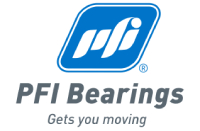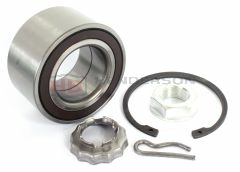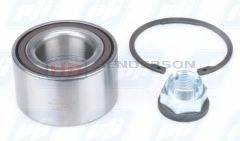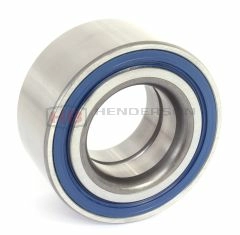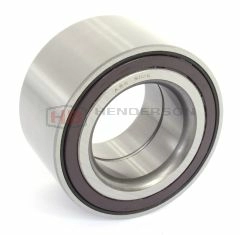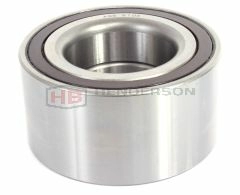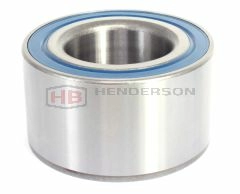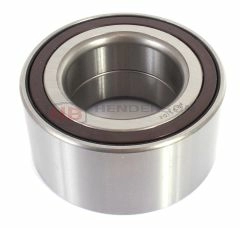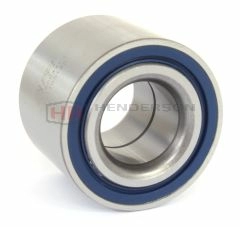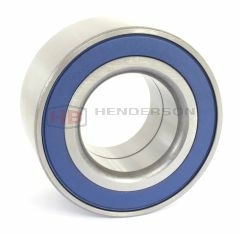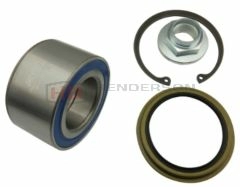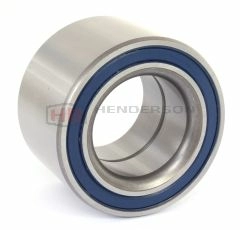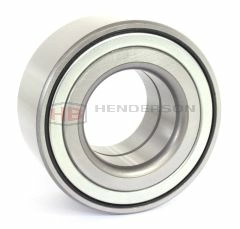Wheel Bearings
Wheel Bearings are crucial automotive components that ensure the smooth and efficient operation of a vehicle's wheels.
About Wheel Bearings
Wheel Bearings are designed to accommodate both radial and axial loads, allowing the wheels to spin smoothly and quietly while reducing friction and enhancing performance. Essential for maintaining the reliability of your vehicle's movement, they are specifically engineered to sustain the intense demands of driving.
Core Products in Our Wheel Bearings Range:
Clutch Release Bearings: Tailored to engage and disengage the clutch seamlessly, these bearings contribute to the smooth operation of your vehicle’s transmission.
Taper Roller Bearings: Ideal for handling heavy loads, these bearings are often utilized in car hubs due to their durability and substantial load capacity.
Bicycle Bearings: Created to endure the challenges of both on and off-road cycling, ensuring cyclists enjoy a consistently smooth ride.
Wheel Bearing Hubs: These pre-assembled units are not only easy to install but also come pre-lubricated and pre-sealed, significantly enhancing their longevity and performance.
Whether you require wheel bearings for your car or bicycle, our expansive selection ensures top-tier performance and quality. Explore our range today to experience the clear distinction quality makes.
For further information or to discuss your specific requirements, please contact our sales team at Tel:-01425-477787, or email sales@hendersonbearings.co.uk.
Is it OK to drive with a bad wheel bearing?
No, it is not advisable to drive with a bad wheel bearing. Driving with a failing wheel bearing can lead to serious consequences, including the possibility of a wheel locking up or even detaching while you are driving. This presents a significant safety hazard to you and other motorists. It is best to address the issue with a bad wheel bearing promptly to maintain vehicle safety and performance.
What are the signs of a bad wheel bearing?
Recognising the signs of a bad wheel bearing can help you take timely action to prevent larger issues. Common indicators include:
- Unusual Noises: A humming, rumbling, or growling noise that increases with acceleration or as the vehicle turns.
- Wheel Wobble: Excessive play or vibration in the wheel, which you may feel through the steering wheel, especially as vehicle speed increases.
- Uneven Tyre Wear: Uneven or rapid wear of your tyres can be caused by failed wheel bearings.
- ABS Failure: In some vehicles, a bad wheel bearing can interfere with the anti-lock braking system (ABS).
How much does a wheel bearing cost to replace?
The cost to replace a wheel bearing can vary widely depending on the make and model of your vehicle and the labour costs of your mechanic or dealership. On average, you can expect to pay anywhere between £120 to £600 for each wheel bearing replacement. This price includes both parts and labour. Front-wheel bearings typically cost a bit more to replace than rear ones. To get a more accurate estimate, it's best to consult with a repair shop or your dealership.
What noise does a wheel bearing make?
A bad wheel bearing typically makes a distinct noise that is a tell-tale sign something might be wrong. Most commonly, the noise is a grinding, humming, or rumbling sound that becomes more pronounced with vehicle speed or as the vehicle turns. This noise may initially be subtle but can grow louder over time as the bearing deteriorates further. If you hear this type of noise, it’s a clear indication that you should have your wheel bearings inspected by a professional.
